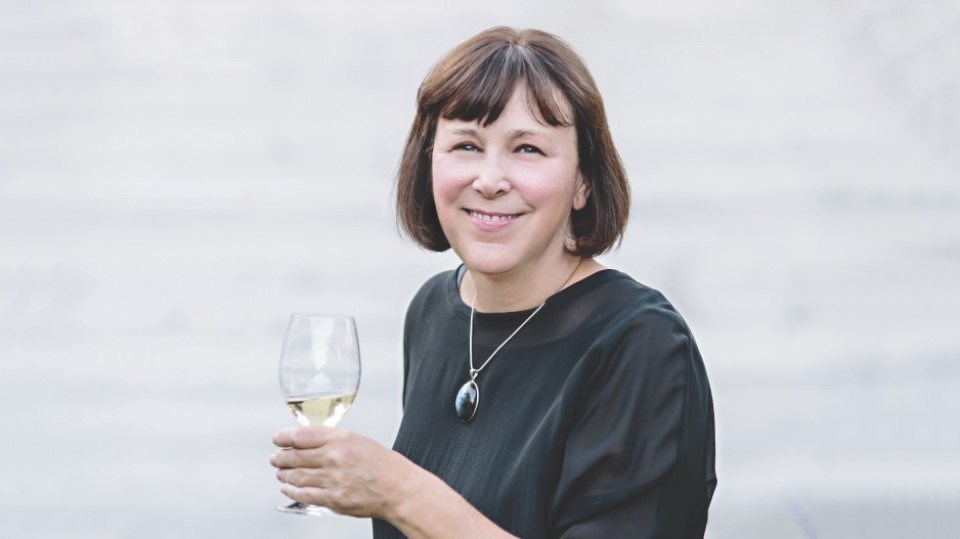Wineries are exploring new ways to attract investor dollars while bolstering emotional connections with customers.
Okanagan Crush Pad has launched a securities crowdfunding campaign that enables the general public to buy blocks of shares in its business for as little as $450, despite the venture not being publicly traded.
The move is an evolution of strategy that Black Hills Winery used about 15 years ago to lure millions of dollars in capital from hundreds of individual investors, and make those people feel more connected to the winery.
Okanagan Crush Pad is using the Vancouver-based, exempt market dealer FrontFundr to process the share purchases.
Winery principal Christine Coletta told BIV that she and husband Steve Lornie own about 1.5 million shares in the business and they plan to sell up to 600,000 shares through securities crowdfunding.
“We’re trying to come up with a way of enticing people to feel like they have pride of ownership, and a higher level of engagement,” Colletta said.
“It’s crowdfunding with shares attached to it, and they are the same class of shares that my husband and I own.”
FrontFundr has done due diligence on the winery, as it does with all companies that sell shares on its platform in order to verify that those ventures’ assets and business operations have market values that justify asking prices for shares.
Okanagan Crush Pad owns 330 acres of land, winemaking equipment and buildings, Coletta said.
The winery is able to produce up to 40,000 cases of wine annually, she added.
Coletta priced the winery’s shares at $15 each, and set the minimum purchase at 30 shares. That pegs its market capitalization at around $22.5 million.
Buyers who live in B.C. are eligible for a 30-per-cent tax credit, which means that 30 per cent of cost of buying shares can be applied directly to buyers’ tax bills. That credit effectively pushes down the cost per share to $10.50, Coletta explained.
The winery’s board of directors approves each buyer, and Coletta said buyers would only be eligible to sell their shares to willing buyers if the board approves the sales — something that would not likely be a problem.
Dividends are possible, she added.
Unaccredited investors are allowed to invest up to $5,000.
Back in 2007, when , B.C. did not have its current crowdfunding legislation.
Black Hills therefore had to use a different process to avoid having to produce a prospectus — it required all individual investors to be wealthy enough to qualify for accredited-investor exemptions, former Black Hills CEO Glenn Fawcett told BIV.
The British Columbia Securities Commission allows accredited-investor exemptions for those who have $1 million in financial assets before tax, net of debt, and not including a home or real estate.
Black Hills sold 316 units for $25,000 apiece in 2007. About four years later, it sold another 140 units for $30,000 apiece, Fawcett said.
When , 360 investors owned the winery’s 456 units, Fawcett said.
He estimated that those who in 2007 bought units for $25,000, received about $55,000 per unit 10 years later.
“The pride of ownership — the pride of sharing wine from your winery with your friends and taking your friends for a visit to your winery is very, very compelling,” Fawcett said.
The other option for investors with little capital and a desire to own a small slice of a winery is to buy shares in publicly traded wine companies.
Andrew Peller owns many wine brands, including B.C.’s Gray Monk Estate Winery and Tinhorn Creek Vineyards.
Duckhorn Portfolio Inc. owns many American wine brands, including the high-end Napa Valley brand Duckhorn Vineyards. Various other alcohol conglomerates are also publicly traded. Vintage Wine Estates is another larger wine-focused publicly traded company.
Andrew Peller, Duckhorn and Vintage Wine Estates are all much larger than Okanagan Crush Pad, and are therefore able to spread the cost of being a public company over more substantial business operations, Fawcett said.
Investors not interested in wineries but who want to buy small stakes in other real estate have a different relatively new option.
Vancouver-based . It sold all shares in the property for $1 apiece and then moved on to buy other properties and replicate the process, CEO Stephen Jagger told BIV.
“For that original Starbucks we’ve had eight consecutive quarters of paying dividends,” he said.

